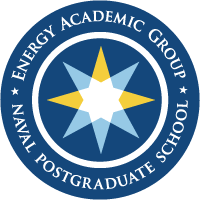NPS’s Energy Academic Group supports NATO Energy Exercise CORE18 - Energy Academic Group
The Naval Postgraduate School’s (NPS) Energy Academic Group (EAG) supported the NATO Energy Security Center of Excellence’s tabletop exercise (TTX), Coherent Resilience 2018 (CORE18) in Vilnius, Lithuania.
EAG supports NATO Energy Exercise CORE18
From 3 – 7 December 2018, The Naval Postgraduate School’s (NPS) Energy Academic Group (EAG) supported the NATO Energy Security Center of Excellence’s tabletop exercise (TTX), Coherent Resilience 2018 (CORE18) in Vilnius, Lithuania. In addition to playing an integral role in the development and execution of the TTX, the EAG led the Exercise Evaluation Group.
The TTX focused on Critical Energy Infrastructure Protection/Resilience (CEIP/R) and the collective defense of the Baltic region’s fuel supply from hybrid threats. The goals of the event were to identify vulnerabilities in current fuel supply infrastructures (to include electricity, transit, and communications networks), determine military dependence on those infrastructures, and to consider measures to protect them. CORE18 participants included government officials, military personnel, and industry representatives from Estonia, Latvia, Lithuania, and Poland, as well as NATO personnel from across Allied Nations.
CORE18 further highlighted the importance of fully understanding hybrid warfare and the types of campaigns that may be carried out by our adversaries in attempts to create instability, undermine national governance, sow divisiveness within NATO, and—potentially—seize territory. Participants identified the need to develop a strategy that not just responds to hybrid threats, but defeats a hybrid campaign.
To execute its evaluation mission, the EAG assembled an interdisciplinary team of experts that included faculty from the NPS Center for Infrastructure Defense, the Systems Engineering Department, Defense Analysis, the Graduate School of Business and Public Policy, the Center for Civil-Military Relations, personnel from the U.S. Naval Reserves, the U.S. Air Force’s Operational Energy Office, and NPS students.
LEARN MORE
Email Lawrence Walzer at lmwalzer1@nps.edu or call 831-656-3777
Quarterly Newsletter
Surge is published quarterly by the Energy Academic Group and covers a divese range of energy-related topics. View archive

